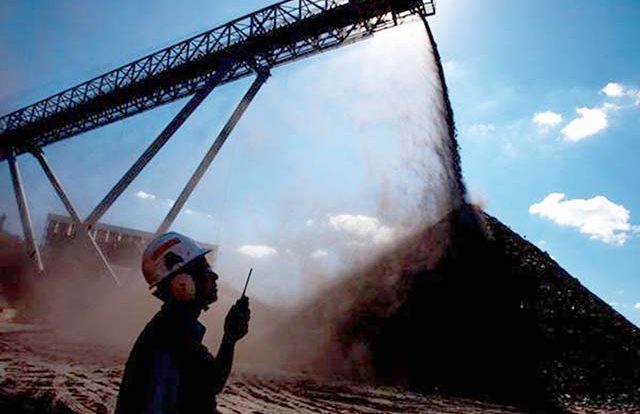
third day of First Regional Meeting of the State of Minas Gerais Icle (Local Governments for Sustainability) South America – began with the general discussion of the topic “Economic Diversification and Re-Transformation of Territories”. The aim was to mobilize participants for a discussion about reducing local governments’ dependence on mining through local and regional diversification.
The end of the mining cycle in the state and the urgent need to diversify the economy so that the areas harboring extractive activities can provide population development and a quality of life that fits with the overall theme of the event, which is “sustainable development in transforming territories.”
The historical and turbulent relationship between mining and society, not only in Minas Gerais and Brazil, but in the world, has been challenged to enter a new cycle, marked by frank dialogue, transparency and responsibility.
Opening the event live, the UK Consul in Minas Gerais, Lucas Brown, highlighted that modern life cannot give up mining. The sustainability of other production chains is closely related to minerals that allow us, for example, to store energy produced by clean sources in portable batteries.
“If we want to tackle the energy transition to reach a low carbon economy, we will need more mining. But as mining increases, we need to raise our standards. We at the Consulate are always promoting and implementing best practices, both through the adoption of renewable energy standards, management and governance , for example. In the UK we have a history with mining, not always with good experiences, with closed mines, sudden closures, which taught us lessons. We live almost all the time under the mining cycle that extends from studies to mine closures. Today, With ESG, we’re seeing an evolution in mining. We know about the challenges, but we’re in a moment of change in mining, who also wants to know what’s next, and the legacy they can leave after a mine is exhausted,” explained Brown.
In this sense, the Mayor of Ouro Preto, Angelo Oswaldo de Araujo Santos, who participated in the “Land Reconversion: Success Stories and Good Practices” commission, drew attention to the need to “transform” the activity.
“It is very important that the Brazilian government and the government of Minas Gerais put in place public policies that are also related to companies. It is important that they also have a mentality of re-reflection and compatibility with society. Mining must be compatible with urban areas. Mining in Minas Gerais takes place in urban areas. Santos advocated About why they are so powerfully transformed not only in landscapes, but also in urban landscapes.
environment manager at Anglo American BrazilTiago Alves, after signing the Protocol of Intent to adopt initiatives with a sustainable approach with Iclei, spoke about the need for a new mindset for the sector.
“Mining has made many mistakes throughout history, but it is an essential activity, and we want to have the courage to change. We have learned, historically, that working alone does not produce results. Mining must lose its arrogance and open its ears and heart. Economic diversification is sorely needed. The impact that mining brings is positive and that is what we want to do,” Alves explained.
Ekli also signed cooperation protocols with Orbbrasil it’s the Espinhaku Institute. and another with the Association of Mining Municipalities of Minas Gerais (Friend).
Project Eden inspires action around the world
The section “Economic Diversification and Land Transfer” recounted the experience of the Eden Project. Located in Cornwall, England, the site is a complex with stages, restaurants, gardens and two giant greenhouses with domes up to 100m high. One includes the largest tropical forest in a controlled environment in the world, with species brought from all over the world, and the other, thousands of plant species from the Mediterranean climate.
The choice of land for an old mine, in addition to the revitalization of the area, had important characteristics of the project, such as facing south and different views of the sea.
According to Eden CEO David Harland, the space is the most important tourist attraction in England outside the capital, London, and is already a source of inspiration for other projects around the world.
“We are a profitable company, but in a different way, with the goal of reminding people that we are part of and dependent on the natural world. We believe in business. It is possible to turn a totally degraded place into a beautiful place,” explained Harland.
The project operates through a partnership that unites public and private entities everywhere and about 80% of everything consumed comes from local producers.
“This is one of our metrics that I like the most. We have to keep in mind the people in that place. For Minas Gerais, I see that there are many opportunities and this event shows that there is a will. If I could give one piece of advice,” said CEO of Eden. It would be: keep going.

“Friendly zombie guru. Avid pop culture scholar. Freelance travel geek. Wannabe troublemaker. Coffee specialist.”






